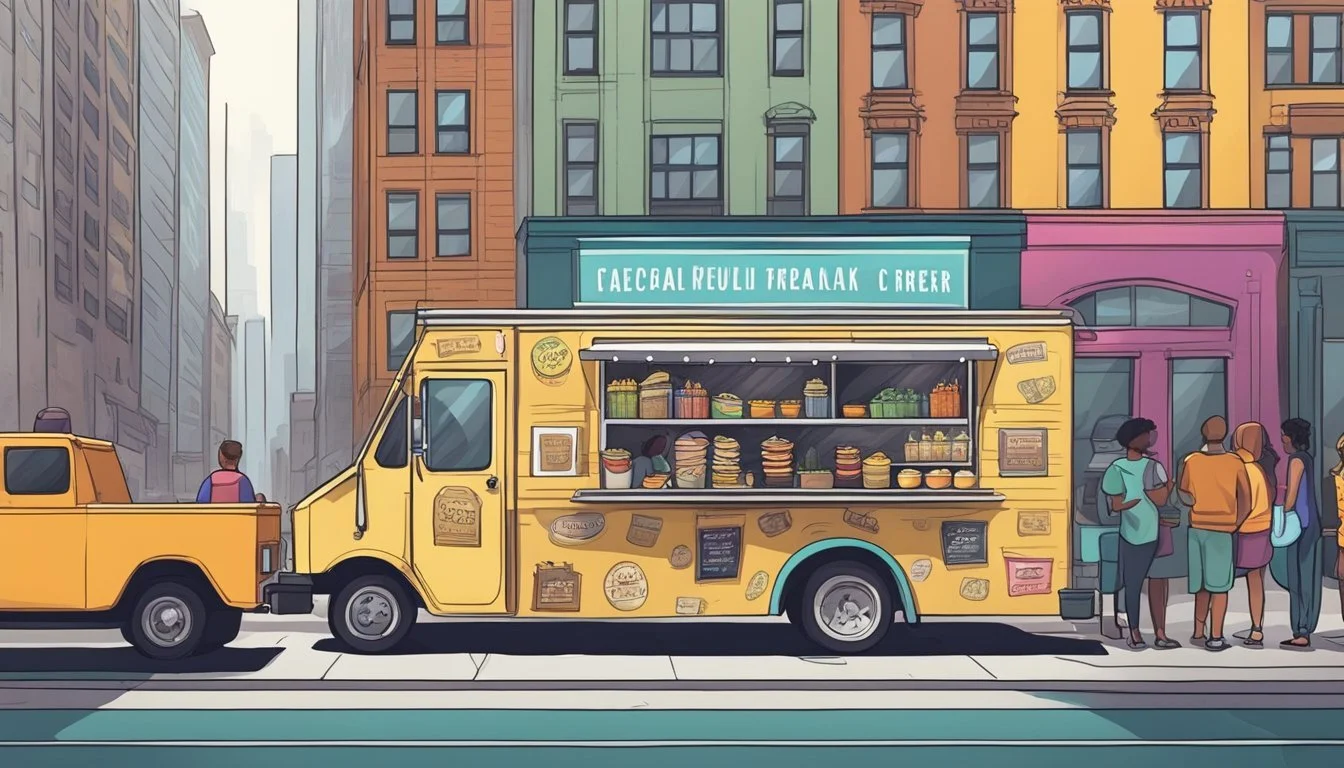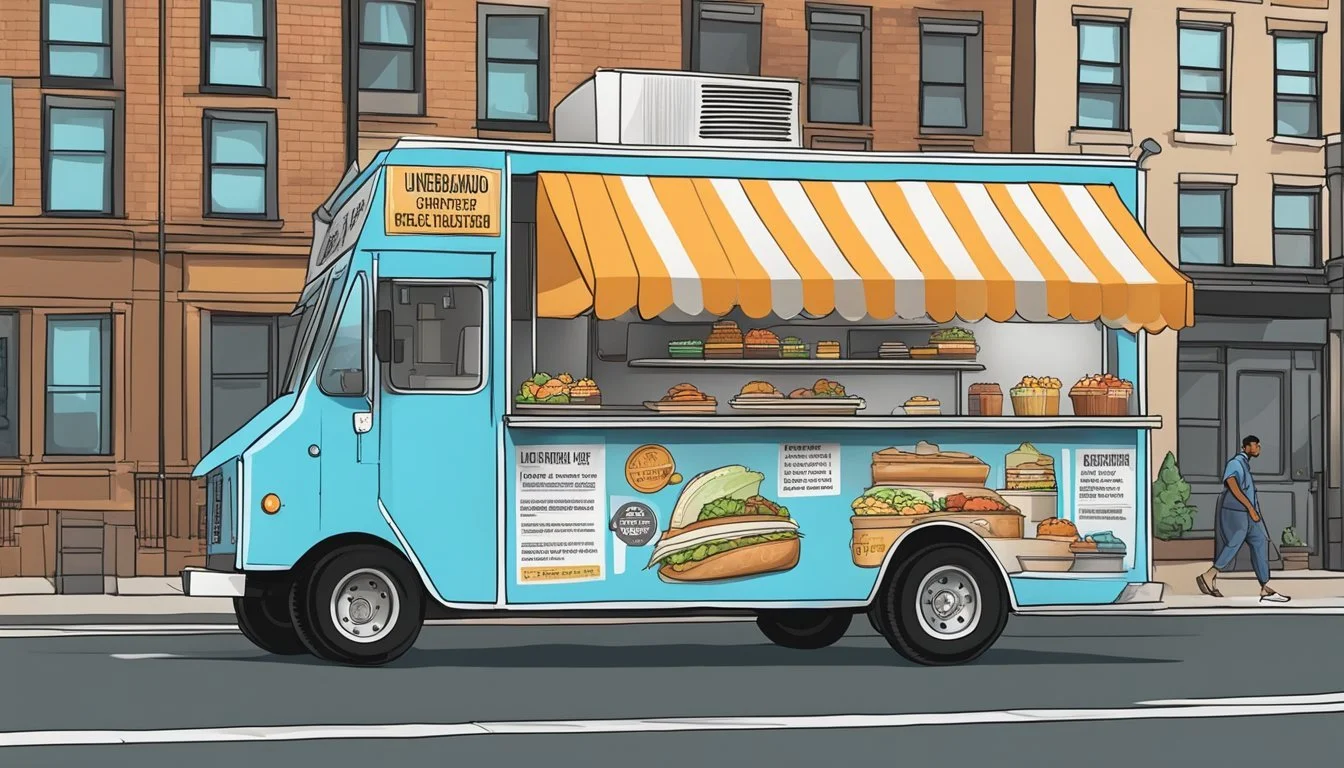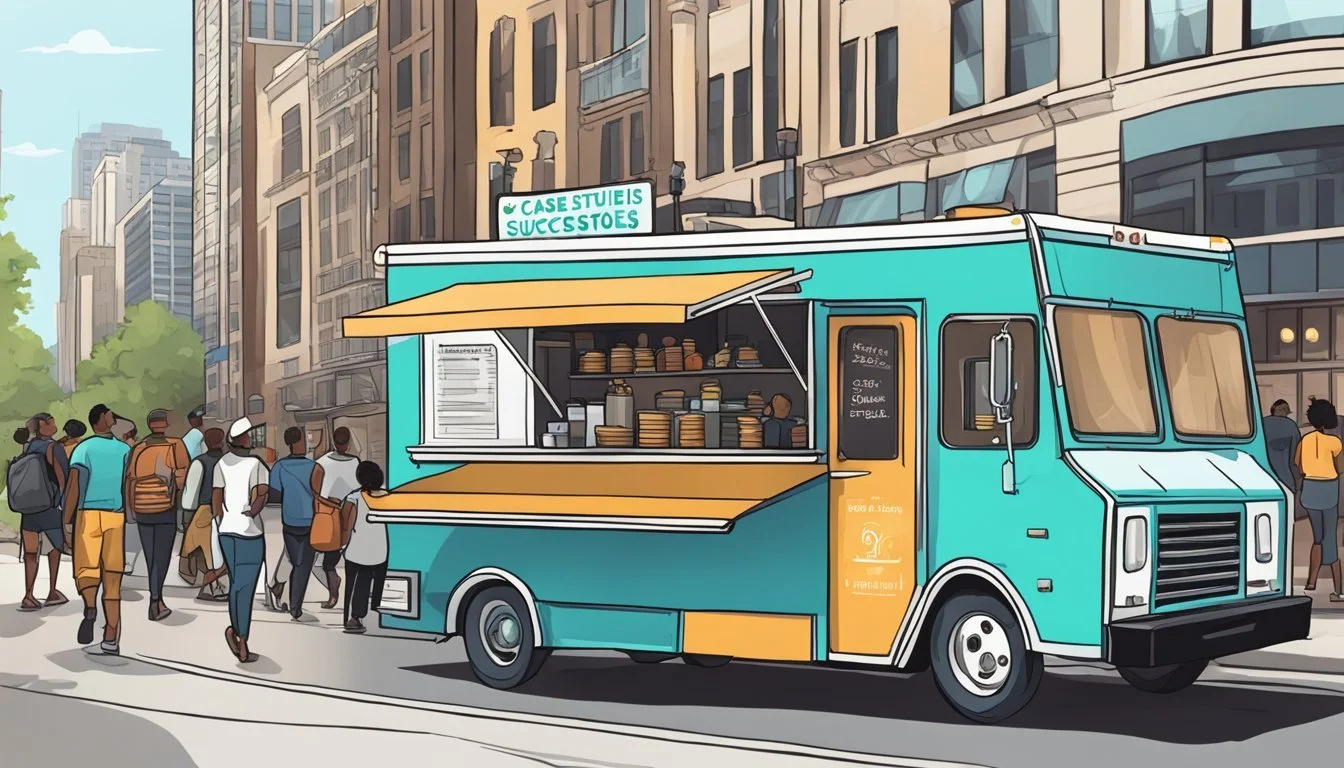Food Truck Laws Chicago, Illinois
Navigating Regulations for Mobile Vendors
Navigating the competitive landscape of street food in Chicago requires a thorough understanding of the local laws and regulations that govern food trucks. The city has established specific requirements for operating these mobile eateries to ensure public health and safety, as well as fair business practices. These laws encompass a range of operational aspects, from proper licensing and sanitation standards to parking regulations and designated zones for vending.
Food truck operators in Chicago must secure various licenses and permits before hitting the streets. These include a Mobile Food Vendor License, which comes in two different types, depending on whether the vendor is a Mobile Food Preparer or a Mobile Food Dispenser. The former allows for cooking on the vehicle, while the latter is limited to serving pre-packaged foods. Ensuring compliance with food safety regulations is also mandatory, including adherence to temperature controls and proper waste disposal practices to the food truck licenses and permits required in Illinois.
In addition to meeting health and safety standards, food truck operators in Chicago are required to adhere to specific parking rules and leverage commissaries. They cannot prepare or store food in residential properties and must associate their operation with a licensed and approved commissary kitchen. Moreover, there are designated spots and time limits concerning where and for how long a food truck can operate, helping to regulate traffic flow and maintain orderly streets.
History of Food Truck Legislation in Chicago
Chicago's food truck laws have evolved through a series of legal challenges, shaping the landscape in which these mobile eateries operate. This section will explore the inception of these regulations, significant court cases that have influenced the current legal framework, and one notable legal battle involving entrepreneur Laura Pekarik.
Origins of Food Truck Laws
Food trucks in Chicago have been subject to city ordinances designed to manage the burgeoning industry while balancing the interests of brick-and-mortar restaurants. Initially, city regulations were introduced to ensure health standards and fair business practices. However, as food trucks became more popular, more specific rules were drafted to govern their operations within the city limits.
Significant Legal Battles
The legitimacy of food truck regulations has been contested in a number of legal battles. Proponents argue that these laws protect public safety and the established restaurant industry, while opponents claim that they stifle competition and entrepreneurship. One of the most contentious regulations is the 200-foot rule, which prohibits food trucks from operating within 200 feet of any brick-and-mortar establishment that serves food. Challenges to this rule have sparked legal debates over fairness and the free market.
Laura Pekarik and the Cupcakes for Courage Case
Entrepreneur Laura Pekarik fiercely challenged the Chicago food truck ordinance after facing limitations imposed on her own business, Cupcakes for Courage. Pekarik's legal struggle reached the Illinois Supreme Court, where a precedent-setting decision was made. The court sided with the city, upholding the legality of the 200-foot rule and affirming the city's right to enforce such regulations. This case became a significant reference point for future discussions on the balance between regulation and entrepreneurship in Chicago's food truck industry.
Understanding Current Food Truck Regulations
The food truck industry in Chicago is subject to a range of regulations designed to ensure public safety and fair competition. This includes specific requirements for permits and licenses, adherence to health and safety standards, location and parking restrictions, and various operational constraints.
Licensing and Permit Requirements
Operating a food truck in Chicago requires obtaining both a Mobile Food Vendor License and potentially other permits depending on the type of service provided. The licenses are classified into two main types: Mobile Food Dispenser (MFD) and Mobile Food Preparer (MFP). MFP licensees have more stringent requirements due to the permission to prepare and cook foods onboard. The fees for these licenses vary, with the standard term being 2 years.
Inspection and Health Standards
Before hitting the streets, all food trucks must pass rigorous health inspections to ensure they meet the City of Chicago's food safety regulations. This includes maintaining proper food temperature controls and ensuring employees have the necessary food sanitation certificates. Health inspections are periodic and can be conducted randomly to maintain ongoing compliance.
Parking and Location Restrictions
In terms of parking, food trucks are not allowed to operate within 200 feet of any brick-and-mortar restaurant's principal customer entrance during its hours of operation. They must also adhere to designated parking zones and times, which may vary depending on the area. Non-compliance can lead to fines or revocation of their vending license.
Operational Constraints
Food trucks in Chicago are required to be equipped with functioning GPS devices to allow the city to monitor their locations. These regulations are put in place for public safety reasons and to address traffic control concerns. Additionally, food trucks face motorized vehicle laws that control the operational aspects such as the hours of operation and waste disposal.
Business Side of Running a Food Truck
The business aspects of operating a food truck in Chicago encompass multiple layers, from obtaining the necessary licenses and handling various costs to adhering to strict city regulations and navigating the competitive market.
Acquiring Licenses and Permits
In Chicago, food truck vendors must procure specific permits and licenses to operate legally. This involves an application with the City of Chicago’s Department of Business Affairs and Consumer Protection, where prospective vendors apply for either a Mobile Food Dispenser or Mobile Food Preparer license, dictated by the level of food handling.
Fee Structures and Business Expenses
Food truck operators encounter various business expenses, including license fees that depend on the term length—a two-year term costing up to $1,000 per Mobile Food Vehicle. Additionally, they need to budget for the cost of the vehicle, kitchen equipment, supplies, and ongoing operational costs such as ingredients and fuel.
Compliance with City Ordinances
All food trucks in Chicago must comply with city ordinances, including health and safety regulations and equipment requirements outlined by the Municipal Code of Chicago. They must also follow strict guidelines on where they can park and for how long, with a maximum of a 2-hour service limit in any legal parking spot.
Entrepreneurial Challenges and Opportunities
Food truck entrepreneurs face significant competition within the vibrant food truck industry that contributes to the city's economic growth. Success requires innovation, excellent food quality, and strong marketing strategies. Despite challenges, food trucks offer unique opportunities for entrepreneurs to craft a niche in the culinary landscape of Chicago.
Legal Implications and Advocacy
The landscape of food truck legislation in Chicago involves a complex web of legal actions, institutional roles, and advocacy efforts. These include lawsuits that have risen to the highest state courts, diverse legal institutions' involvement, and dedicated advocacy groups pushing for industry reforms.
Key Legal Actions and Their Impact
The legal environment for food trucks in Chicago has been shaped significantly by key lawsuits, including one that reached the Illinois Supreme Court. The court's decision to uphold the city's restrictive regulations confirmed the legality of contentious rules like the "200-foot rule" and GPS tracking requirements. This has made it exceptionally difficult for food trucks to compete with brick-and-mortar restaurants due to operation limitations.
Role of Legal Institutions
Various legal institutions including the Illinois Policy Institute, the Institute for Justice, and the Liberty Justice Center have played crucial roles in representing food truck operators. They argue on constitutional grounds, asserting that stringent regulations amount to a warrantless search and inhibit economic liberty. These institutions put forth strong legal arguments in the hopes of swaying opinions and regulations in favor of mobile entrepreneurs.
Advocacy Groups and Industry Support
Advocacy is an essential tool for achieving reform, spearheaded by entities such as the Institute for Justice under campaigns like "My Streets, My Eats". They contend that the current laws infringe on rights and limit culinary innovation in Chicago. Senior attorneys working with these advocacy groups often engage in public education efforts, rallying both legal government interest and popular support to agitate for change. The goal of these advocates is to overturn restrictive laws that they believe are archaic and suppress fair competition within the culinary space. They work tirelessly to protect the interests of food truck owners while navigating the complex interplay of business, law, and government regulation.
Impact on Food Truck Operators and Related Industries
The regulations governing food trucks in Chicago have shaped the dynamic between mobile vendors and traditional restaurants. These laws affect various factors, including market competition, consumer choices, and the overall gastronomic landscape of the city.
Effect on Brick-and-Mortar Establishments
Food truck regulations in Chicago have been shown to create challenges for brick-and-mortar establishments. Restrictive measures, such as the requirement for food trucks to stay 200 feet away from any restaurant premises, are intended to protect these establishments from the direct competition presented by the mobility and adaptability of food trucks. By maintaining a distance, food trucks may limit direct competition, but the situation has also sparked debates over market fairness and business rights.
Competition Between Street Vendors and Restaurants
The strict enforcement of food truck laws has intensified the competition between street vendors and restaurants. The significant fines levied for violations of these rules, such as the steep penalties for not adhering to the 200-foot rule, have put pressure on food truck operators. These restrictions have made it difficult for trucks to find legal parking spots, giving restaurants an edge, particularly in densely populated areas.
Influence on Chicago’s Culinary Scene
Chicago’s food trucks contribute to the city's culinary scene by offering a diverse array of dining options and fostering innovation in the foodservice industry. However, the city's stringent regulations may stifle the growth of this sector, limiting the variety of food trucks and potentially curbing their role in defining Chicago’s food identity. The tough regulations could therefore have a lasting impact on the city's reputation as a destination for diverse and creative cuisine.
Consumer Engagement and Variety
For consumers, the presence of food trucks brings a unique dining experience and a variety that can complement the stationary offerings of traditional restaurants. With the restrictions limiting food truck operations, patrons face decreased accessibility to the wide range of food trucks otherwise available. However, the enforced GPS tracking of food trucks makes it possible for interested patrons to locate their options, potentially increasing engagement for food truck operators who comply with the mandated laws.
Emerging Trends and Future Directions
The food truck industry in Chicago is a dynamic field influenced by technological innovations, regulatory changes, and evolving consumer trends. Each factor contributes to the ongoing transformation of the industry, signaling both challenges and opportunities for mobile vendors.
Technological Advances in Food Truck Operations
The application of cutting-edge technology is reshaping the efficiency and reach of food trucks. Chicago food vendors now leverage GPS technology to provide real-time updates to consumers about their location and menu options, enhancing customer convenience and driving sales. Additionally, fleet management software assists owners in optimizing routes and schedules, while contactless payment systems and mobile ordering applications cater to the safety and efficiency that modern consumers expect.
Shifts in Regulatory Landscapes
Regulatory shifts pose significant implications for Chicago's food trucks. Recent court rulings have upheld stringent restrictions, affecting where and when food trucks can operate. For example, a court backed the city's 200-foot rule, which prohibits food trucks from operating too close to brick-and-mortar restaurants. Entities like the Liberty Justice Center continue to represent vendors in challenging these regulations, seeking to strike a balance between fair competition and urban space management by city officials.
Evolving Consumer Preferences
Consumer preferences drive the food truck industry's evolution, with an increasing demand for diverse and quality culinary experiences on the go. Chicago's food trucks are diversifying their offerings to include a variety of cuisines, catering to the city's multicultural populace. Food carts and ice cream trucks are also diversifying product lines or incorporating unique concepts such as farm-to-truck to align with sustainability-minded customers. Vendors stay attuned to these shifts by closely monitoring feedback and adapting their menus to fit emerging tastes and dietary requirements.
Case Studies and Success Stories
The landscape of Chicago's food truck scene tells a tale of creativity, resilience, and the relentless drive of entrepreneurs. While laws have been a significant hurdle, some food trucks have not only flourished but also set precedents for success.
Notable Chicago Food Truck Initiatives
Cupcakes for Courage is one such success story, turning a sweet dream into a thriving mobile business in the face of Chicago's food truck restrictions. They've not only served a delightful array of cupcakes across neighborhoods but have also navigated the 200-foot rule by aligning with various events and private properties where restrictions are less stringent. In doing so, they've kept their menu fresh and their customer base growing.
Another testament to strategic navigation is Aztec Dave’s, which has garnered a loyal following in the North Loop and other neighborhoods. They credit their success to a carefully curated menu focusing on quality and authenticity. This savory success, despite the odds, is served up with a side of tenacity.
Strategies for Long-Term Stability and Growth
To achieve longevity, food truck vendors must strike a balance between following their passion for food and executing savvy business strategies. Tamale Spaceship, for instance, has combined its artistic flair with a solid business model that includes strategic location planning. They focus on neighborhoods where footfall is high and competition from stationary restaurants is manageable.
For many, the path to honest living through food trucks requires a deep understanding of local laws and a flexible business plan. Successful vendors scout locations that comply with the law but also have a sufficient customer base. They're also vigilant in adapting their menu and operation hours to meet customer demands while staying within the confines of the law.
By weaving through the complex tapestry of Chicago's food truck regulations, a number of resilient owners have turned a regulatory challenge into an opportunity for innovation and community building.







